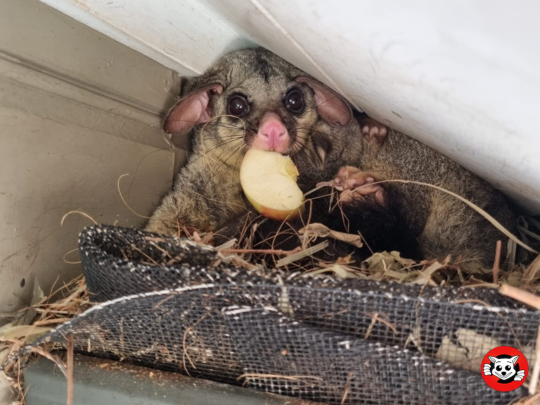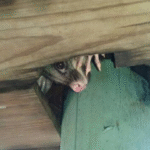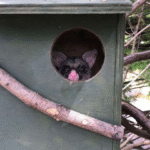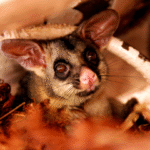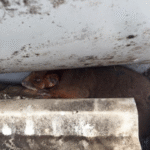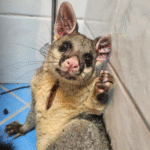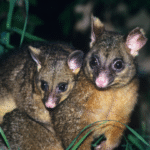What You Should Know
Winter brings cosy nights, warm blankets, and perhaps a hot cup of tea. However, as humans retreat inside for comfort, so does wildlife. For many animals, the colder months signal a need for warmth and shelter, and houses often provide the perfect refuge. Among these visitors, possums are a common sight in Australian homes.
Understanding and managing wildlife activity in your home during winter is crucial – not only for your peace of mind but also for ensuring the safety and welfare of Australia’s native animals.
Here, we’ll explore everything you need to know about winter wildlife activity, with a strong emphasis on ethical and humane practices.
Why Winter Brings Wildlife Indoors
During winter, animals face environmental challenges such as lower temperatures, scarcity of natural food, and loss of habitats. These conditions force wildlife to seek alternative options for survival, often leading them to human dwellings. Homes provide warmth, safety from predators, and easy access to food, making them an attractive shelter option.
Possums, in particular, are expert climbers and often enter homes through roofs, attics, or vent spaces. Their goal is simple – to find a dry, warm spot where they can nest. While their presence might seem harmless at first, it can lead to significant issues, including noise disturbances, property damage, and unpleasant smells, especially if they stay for an extended period. By understanding why animals end up indoors, you can take proactive steps to protect both your home and wildlife.
Common Winter Wildlife Visitors in Australian Homes
Australian homes are prime targets for several types of wildlife during winter, including possums, rodents, and birds. Possums, renowned for their tree-dwelling habits, are especially active during these colder months. Brushtail and ringtail possums often seek shelter in roofs to escape the chill and are known for being territorial and protective of their chosen nesting sites.
Additionally, rodents such as mice and rats are notorious for entering households in search of food. These pests can quickly multiply if left unchecked, creating long-term infestations. Birds, on the other hand, may find their way into attics or sheds to build nests, especially if suitable trees or outside spaces are scarce. Understanding the habits and behaviors of these common visitors allows homeowners to take appropriate preventative measures to minimise disruptions and safeguard their space responsibly.
What You Need to Know About Possums In Winter
Possums are a protected species under Australian law, meaning it is illegal to harm or relocate them without proper permits. These nocturnal animals carry out most of their activity at night, and common indicators of their presence include loud thumping noises, scratching sounds, and droppings discovered in roofs or other parts of the property.
During winter, possums’ nesting behaviors become more noticeable as they seek warmth and security for both themselves and, in the case of female possums, their joeys. This heightened activity makes it essential to manage their presence humanely. One effective method is installing a possum box outside your home, which provides an alternative sanctuary and encourages them to relocate without harm.
Deterrents such as bright lights or essential oil sprays can effectively discourage possums from nesting in your roof. However, because improper handling of possums can result in fines and potential harm, working with licensed professionals offers a legal and compassionate solution.
Signs of Wildlife in Your Home
Detecting the presence of wildlife in your home during winter often comes down to recognising the key signs. Scratching or scurrying noises are common indicators, particularly at night, as animals move within walls or ceilings. The discovery of droppings in areas such as attics, basements, or garages further suggests wildlife activity.
Strange odours, especially unpleasant ones, may emanate from areas where animals have nested or stored food, adding another clue to their presence. Structural damage, such as chewed wires, gnawed wood, or damaged insulation, is another telltale sign of wildlife intrusion. Conducting a home inspection to identify these signs early on can help you prevent small problems from escalating into larger, more disruptive issues.
Ethical and Humane Wildlife Management During Winter
Adopting humane and ethical wildlife removal approaches is essential. Wildlife plays an integral role in Australia’s ecosystem, and treating native animals with care is both a moral and legal obligation. The process begins with securing your home by identifying and sealing potential entry points, such as gaps in roofs, walls, or vents, but only after confirming that no animals are currently inside.
Alternatives like possum boxes encourage wildlife to relocate safely without harm. Harmful practices, such as the use of poisons or traps, should always be avoided as they can injure or unduly stress the animals. Call licensed wildlife removal experts like Possum Busters when in doubt to ensure humane solutions that follow ethical guidelines. By adopting these practices, you help create a balance between ensuring your peace of mind and protecting Australia’s wildlife.
Seasonal Tips to Protect Your Home
Prevention is the most effective way to manage potential wildlife issues during winter. Begin by inspecting your roof and walls regularly for any holes, loose tiles, or broken vents, and repair these access points promptly to reduce the likelihood of intrusions. Cleaning up food sources is another critical step. Keep garbage bins tightly sealed and avoid leaving pet food or bird seed outside, as these items can attract wildlife to your property.
Trimming overhanging branches near your home is also important, as such branches can serve as an easy pathway for possums and other animals to access your roof. Finally, installing mesh netting around garden beds or access points can act as an additional barrier, deterring animals safely without causing harm. Proactive prevention will ensure your home stays wildlife-free, saving you from costly damage or disruptions.
Working with Professionals for Expert Solutions
Dealing with wildlife during winter can feel overwhelming, but you don’t have to face it alone. Professional wildlife management services, such as Possum Busters, provide humane and legal solutions tailored to the unique challenges that winter activity may bring. The Possum Busters team can identify the problem’s root cause, design a customised removal plan, and implement long-term strategies to prevent future infestations.
Whether it involves installing possum boxes, sealing entry points, or conducting a thorough inspection, Possum Busters ensures that both the wildlife and your home are treated with respect. Contact Possum Busters at 1300 663 372 to learn more about their expert services.

